
Too many Covid doses: Switzerland’s vaccine conundrum
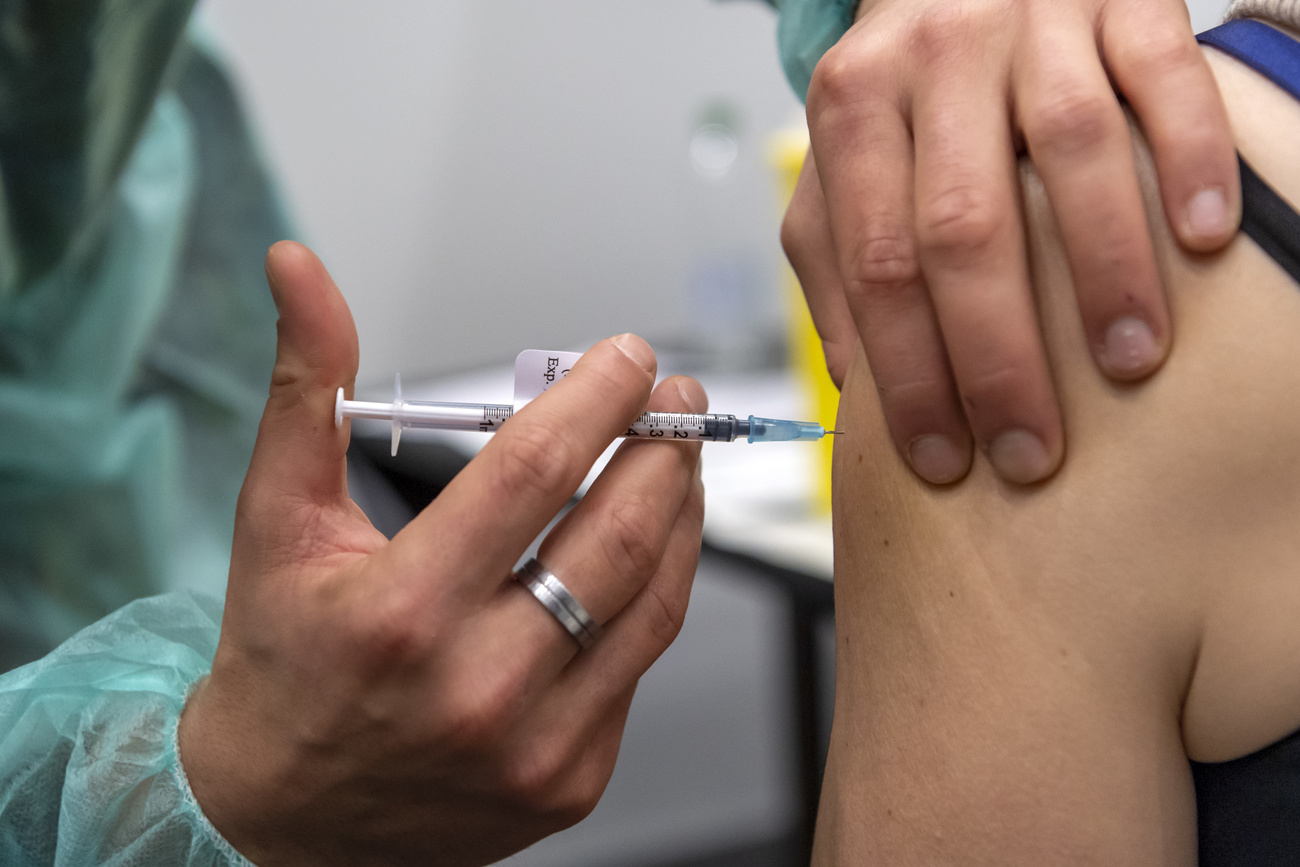
Switzerland is sitting on an estimated 38 million excess Covid-19 vaccine doses to be used by the end of the year. It is unclear what it will do with them.
At the end of May, Switzerland announced that over 620,000 doses of the Moderna vaccine had expired and were scheduled to be destroyed.
This is only a small portion of the total number of doses ordered by Switzerland which have gone unused. Using publicly available data from the United Nations children’s agency (UNICEF), SWI swissinfo.ch estimates that at the time of publication Switzerland still has an excess 38 million vaccines, or doses, that have not been used, some of which will go to waste as their shelf life expires.
The government says it received 21 million doses in 2020 and 2021. Nearly 16 million have been administered to the population. The government has also said that it has 34 million doses available for the rest of 2022. Another 19 million have been donated.
That adds up to roughly to 74 million doses procured for a population of 8.7 million.
The discrepancy between the UNICEF numbers and official Swiss figures is possibly explained by small changes in orders and deliveries, UNICEF experts say.
More than two years after the start of the pandemic, Switzerland, like many wealthy countries, is awash with unused Covid-19 doses and hasn’t announced what it will do with them. It is unclear how many of these 38 million doses will be discarded, used in Switzerland or donated. The recent rise in new Covid-19 infections has not led to more vaccinations, official statistics showExternal link.

More
Coronavirus: the situation in Switzerland
The supply glut of Covid-19 vaccines – not unique to Switzerland – raises the question why so many vaccines were procured without proper planning and what could have been done to avoid the subsequent wastage. Swiss NGO Public Eye suggests that the Swiss government has likely paid between CHF60-million-CHF150 million ($61 million-$154 million) for its excess doses. The calculation is based on similar contracts by European Union countries.
Why so many vaccines?
Wealthy countries ordered their Covid-19 vaccines by signing Advance Purchase Agreements (APAs) with suppliers. These are typical deals used in medical emergency situations. The purchaser commits in advance to vaccines or other medical products which are not yet developed, even if they may no longer be needed when they become available. Sometimes the goods are paid for in advance, and sometimes the purchaser is not sure if they will be delivered. These contracts reduce risk to suppliers by either guaranteeing the price to be paid or the volume to be purchased.
Experts say that typically EU countries have paid 20% of the negotiated price upfront when placing their Covid-19 vaccine orders, with the remainder to be paid upon delivery. APA’s have enabled countries like Switzerland to adapt to the needs of the population and the evolution of the virus and to make sure demand was always met. While this enables flexibility, it also pushed countries to buy more than they needed.
The problem in Switzerland is illustrative of a global phenomenon whereby rich countries over-ordered, swallowing up vaccines as soon as they were available while poorer countries waited until additional doses were available. A recent reportExternal link published in the British Medical Journal found that the EU ordered 4.2 billion doses from eight manufacturers. This is enough to vaccinate its population nine times over.
In January 2022, the life science analytics firm Airfinity estimatedExternal link that 241 million Covid doses purchased by the G7 and EU would go unused and expire by March this year.
In its most recent assessment published July 11, it pinned the number of vaccines likely to have been wasted at 1.1 billion doses.
Airfinity’s assumes a 10% wastage rate from June 2021 when global dose sharing began.
When questioned, governments have defended their strategy by arguing it was difficult for them to assess exact needs of their population. The number of doses they will effectively use depends on variable factors which evolve over time and are unpredictable, such as vaccine acceptance, the number of doses required and how dangerous a virus is perceived to be.
“This procurement strategy ensures that Switzerland always has access to the latest available vaccine variant from the respective manufacturer,” the Swiss government said in February defending its purchases.
In trying to pin down the extent of the problem, it is important to distinguish procured vaccines – those ordered – from those actually delivered. “This means that not all doses procured have been delivered to the country yet. Some may be donated before they reach Switzerland,” a Swiss government spokesperson told SWI swissinfo.ch.
The lack of transparency behind the decision-making is just as concerning as the current wastage of vaccine doses. Little is known about the contract terms negotiated with the manufacturers.
The Swiss government could not confirm whether all vaccines procured had been paid for or whether some orders had been cancelled. In addition, it refuses to comment on expenditure estimates by the NGO Public Eye.
“Such information is part of the contracts between the manufacturers and Switzerland as procurer of the vaccines. The content of these contracts is still confidential. We therefore decline to comment on the statements,” a Federal Office of Public Health (FOPH) spokesperson told SWI.
A parliamentary request was made in December 2021 for the Swiss government to publish its contracts. The FOPH had said they would publish the contracts by June 30, 2022.
In its latest response to SWI, the government said its Covid-19 contracts would be available to the public but did not provide a date.
“To protect the legitimate interests of the contracting parties, the FOPH has initiated the consultation process on possible blackening [of the text]. This process is currently underway. Subject to legal action on the part of the contracting partners, access to the contracts will be granted following the procedure,” it wrote.
Donating won’t fix all
The question now remains what will happen to these remaining 38 million doses.
Switzerland has vaccinated almost 70% of its population but demand for further vaccinations among the population has waned. At the start of July 2022, only 1,700 vaccine doses were administered over the previous seven days, according to government figuresExternal link.
This could change with the increase in new cases since the end of May and the circulation of the Omicron subvariants BA.4 and BA.5. On July 5, the health authorities recommended that over-80s and vulnerable people should get a second Covid booster jab. But a general booster campaign to protect the entire population will not start before autumn.
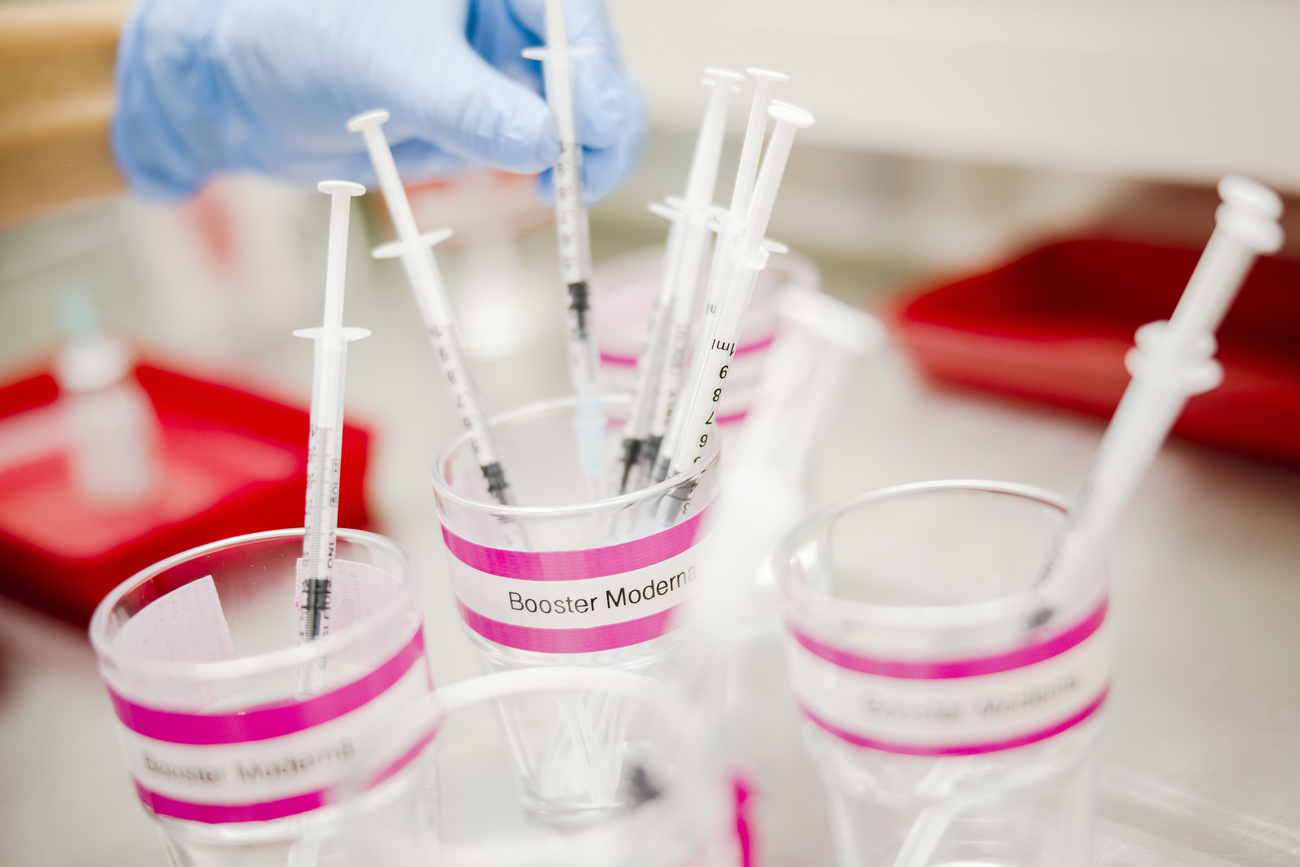
More
Health experts recommend booster jab against Covid
There are three options for the large number of excess doses – they’ll either be discarded, donated or sold. The government has said up to 19 million have been scheduled for donation. Some 15 million of those could be transferred to the COVAX programme, which seeks to ensure fair and equitable access to Covid-19 vaccines worldwide and distributes vaccines to developing countries. Negotiations between COVAX and Switzerland are said to be ongoing.
Despite public pledges of generosity, COVAX has only received a fraction of its planned donations.
In June the government revealed that only 1.8 million AstraZeneca vaccines out of 4 million planned for donation as part of the COVAX programme had been sent to recipient countries. It is unclear where the remaining 2 million-plus doses are or whether they were ever produced, and even if they are still needed on the ground.
“These contracts [between COVAX and recipient countries] are more complicated than initially planned,” Nora Kronig, head of the international affairs division at FOPH, told Swiss public television RTS. “There are questions surrounding the timing, responsibility, market authorisation, labelling and delivery of the products.”
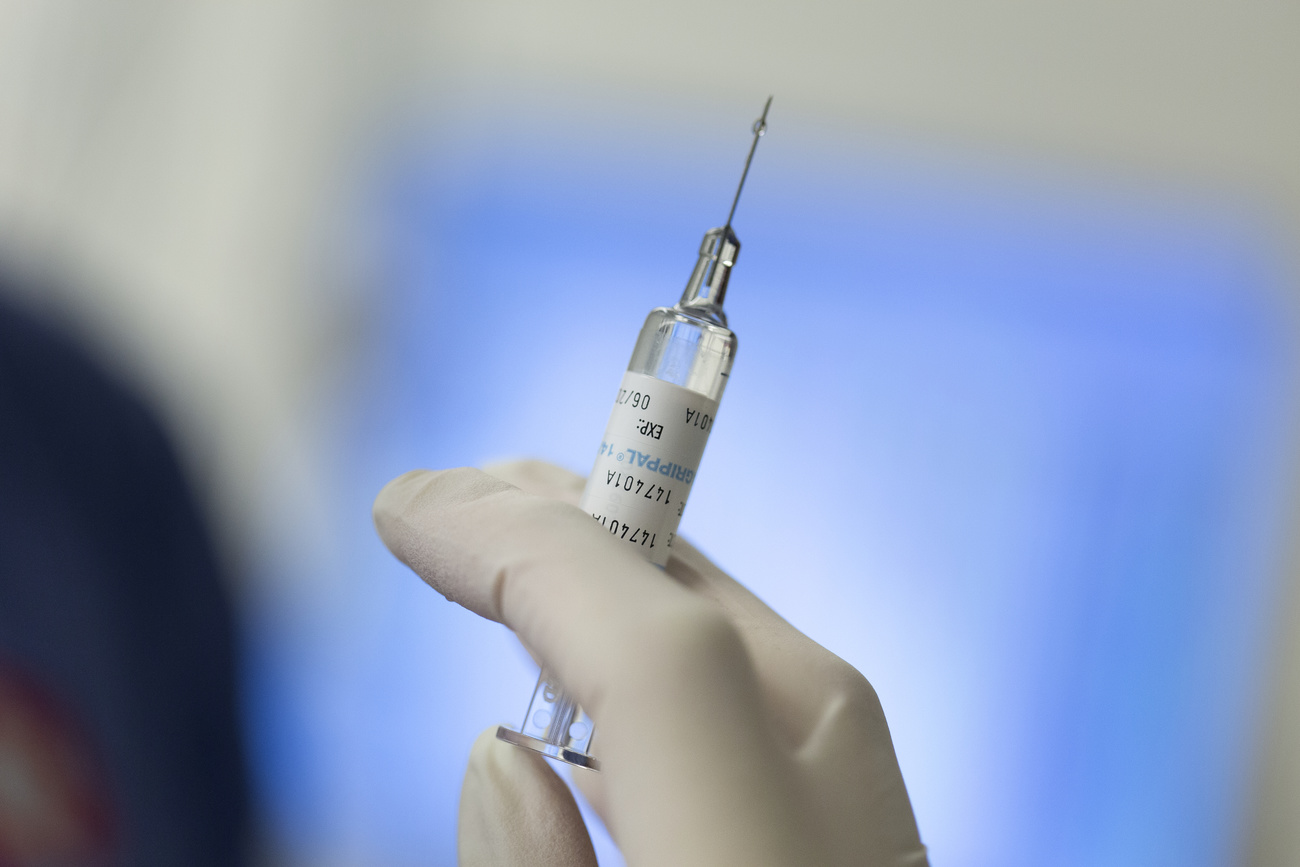
More
Switzerland to donate up to 15 million vaccines to COVAX
It is unclear at this point how many more doses will expire or have already expired. This depends on when they were produced and if they have already been delivered. The government does not share information on the status of expiry of doses.
Based on the date of procurement, and deals from 2020 and 2021, SWI believes that many of the 38 million doses will likely expire soon. In answer to our questions, the government says some of these doses are still with the manufacturers.
As they expired, doses have been destroyed in Germany, Nigeria, Indonesia, Rwanda and Britain, among others.
“Too often, countries receive unexpected deliveries of doses close to expiry, with far too little transparency of when doses will arrive, what product will arrive, or how much will arrive. More than two-thirds of donations are vaccines with less than three months’ shelf life remaining. This hampers countries’ ability to plan, to deploy domestic resources, and to mobilise populations and community leaders,” Tedros Ghebreyesus, director general of the World Health Organization (WHO), saidExternal link on December 6, 2021.
In April this year, the Swiss government told SWI that only doses with a reasonable expiry date were eligible for donation and that no expired doses would be donated.
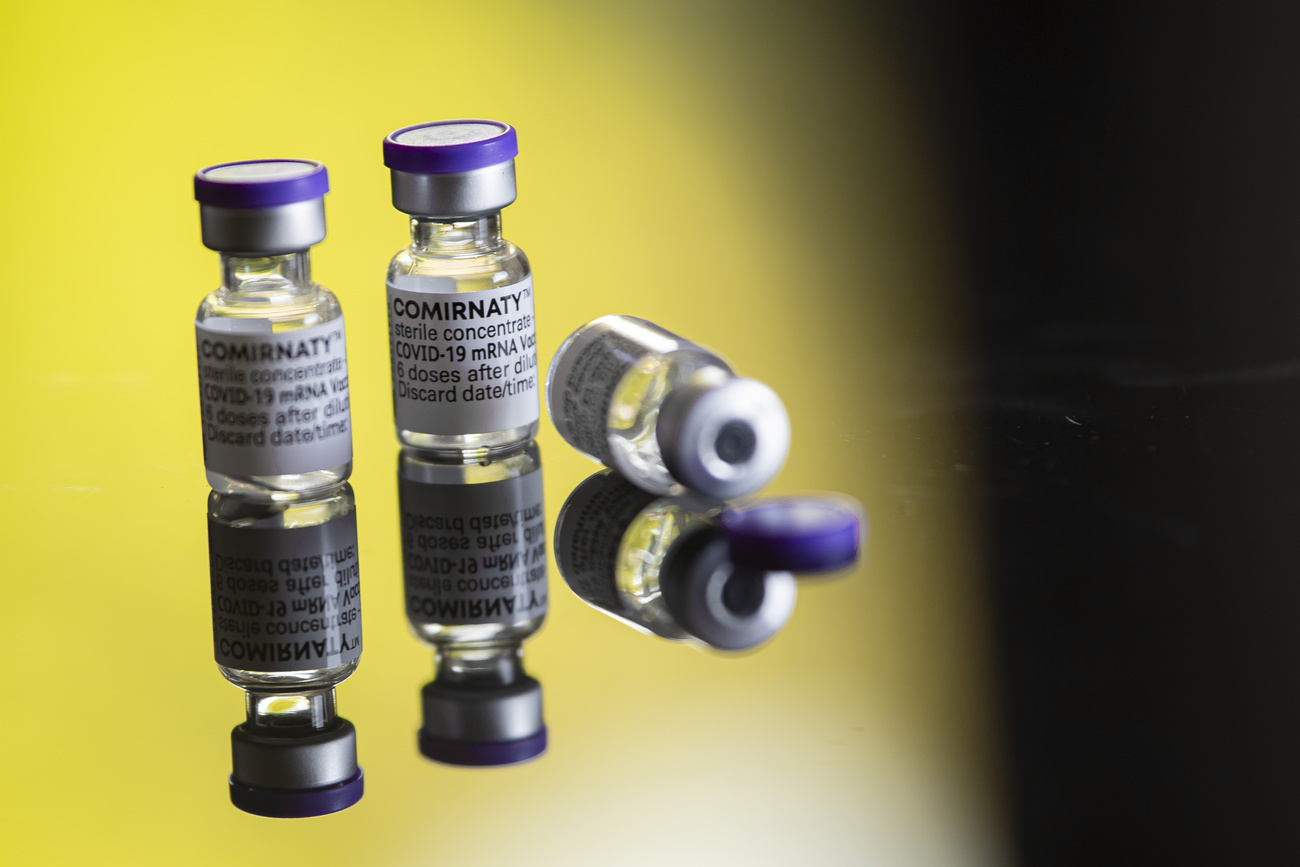
More
Swiss government forced to halve 2023 Covid vaccine orders
Lessons learnt?
A government spokesperson told SWI that there would be no strategy change for future procurement contracts. But pressure is mounting for better planning and transparency. For 2023, the government had procured an initial 14 million doses of Covid-19 vaccines from Pfizer/BioNTech and Moderna.
That order was cut by half mid-June under pressure from parliament. This is expected to reduce the bill from CHF780 million ($780 million) to CHF560 million.
“Procurement should be more transparent in the future, without excess ordering because it affects the access to vaccines in lower-income countries and leads to wastage. The EU parliament was much more active in pushing for transparency for contracts. This has been way too timid in Switzerland, at least until recently,” said Patrick Durisch, a health policy expert at Public Eye.
“As a small country with substantial purchasing power and that promotes good governance, the government should have avoided hoarding vaccines,” he added.
APA contracts are also in the spotlight. In a recent report UNICEF said these contracts were causing risks to the buyers. The agency advocates among various measures more regulatory approval in recipient countries as well as support for delivery. “Many other elements are needed to create viable demand and a functional supply chain for Covid-19 vaccines to materialise, adding to the risk assumed by the buyer,” it said in its report, citing procurement experts.
This article is part of series from a cross-border investigative project called #followthedoses, financed by the Investigative Journalism for Europe (IJ4EU) fund. Lucien Hordijk (Netherlands), Ludovica Jona (Italy), Hristio Boytchev (Germany), Flourish Alonge (Nigeria) and Rahul Basharat Rajput (Pakistan) also participated in the in the investigation.
Edited by Virginie Mangin
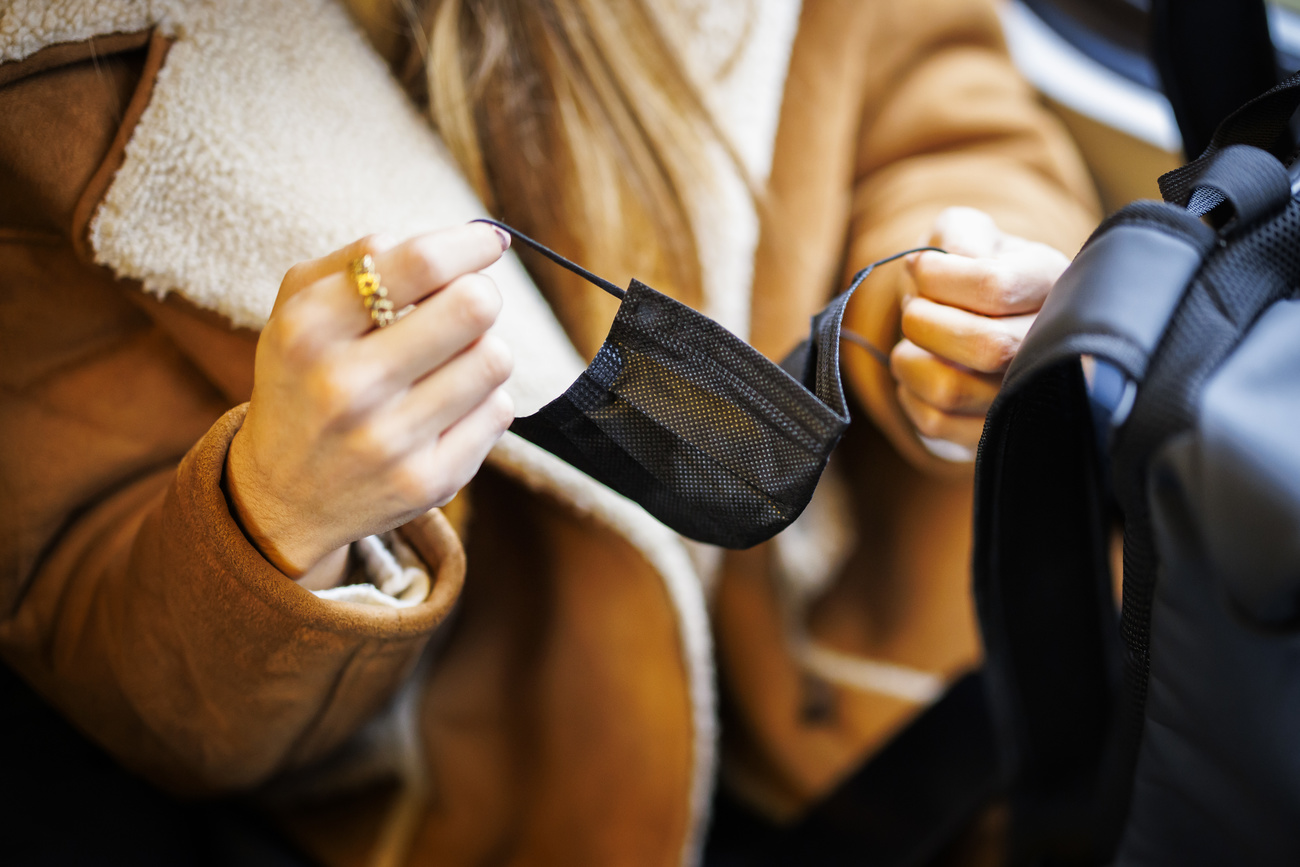
More
New Covid surge could infect over one million Swiss this summer

In compliance with the JTI standards
More: SWI swissinfo.ch certified by the Journalism Trust Initiative





























You can find an overview of ongoing debates with our journalists here . Please join us!
If you want to start a conversation about a topic raised in this article or want to report factual errors, email us at english@swissinfo.ch.